In this episode of our podcast series 'A Better Tomorrow', we dig a little deeper into climate change. What’s happening to our world and what, if anything, can we do about it?
Melting ice-sheets and mass extinctions. Wildfires, extreme weather and whole islands washing away into the sea. There are few issues more dramatic and demanding of our attention than climate change.
In this episode, you can…
Hear about the past, present and possible future of our world’s glaciers and ice sheets from Dr James Lea, Senior Lecturer in Glaciology at the University of Liverpool. Learn what impacts ice sheet and glacier loss might have on all of us.
From Dr Madhu Dutta-Koehler from Boston University, learn why climate change is such a concern for the city of Dhaka and how the historical homeland and burial ground of a Native American tribe will soon disappear. Hear how we can deal with these things, but also why it will be no easy feat.
Hear about the impact of climate change on the flora and fauna all around us from Kate Norgrove, executive director of advocacy and campaigns at WWF. Learn to what degree 1.5˚C should be a concern to all of us.
Most importantly, hear all of their thoughts on what we can all do to make a difference and steer us towards a better tomorrow.

"In the end, it's going to be everybody's problem, because when there is scarcity and when there is calamity, there is going to be no stopping or containing people from wanting to survive."
Madhu Dutta-Koehler
Transcript
If you're able to, please listen to the audio of the episode. The written word can lack the emphasis, emotion and nuance that comes from hearing our guests speak.
These podcast transcripts are made using a blend of speech recognition software and human transcription and may contain errors. If possible, please cross-reference with the episode audio before quoting anything contained below.
Zelda Bentham
It's going to be the largest cause of conflict and wars going forward.
James Lea
Because we live in a very connected world, stuff that appears to be local impact will also have regional and international knock-on implications.
Madhu Dutta-Koehler
In the end, it's going to be everybody's problem, because when there is scarcity and when there is calamity, there is going to be no stopping or containing people from wanting to survive.
Kate Norgrove
Loss of nature is driving climate change and climate change is driving the loss of nature, and the two together are putting us into a very dangerous situation.
Sam Woods
Hi, I’m Sam and you are listening to a Better Tomorrow, a podcast powered by Aviva.
War, global conflict, the struggle to survive, the collapse of nature… those clips you just heard paint a pretty bleak picture.
None of it sounds like a better tomorrow at all.
But if I’m making this podcast series about the future, skipping over climate change would be a pretty blatant cop-out.
Climate is kind of a big deal...
[Recording of Greta Thunberg addressing crowd in Bristol]
The biggest, really, and I’m not sure how tomorrow’s going to be much better...
But that’s what I want to find out.
Before we get into it, I have a couple of pre-episode disclaimers:
This is not about whether climate change is real or not. If we go down that rabbit hole, this’ll turn into a conspiracy theory podcast and the next episode will be about Roswell.
I’m not an expert. I’m talking to some very smart, very qualified people in this episode, but me? I'm not that smart and even less qualified. If there are any factual mistakes, they’re on me.
That out of the way... let's dive into the rapidly warming waters of climate change.
I’ve been thinking about this episode for a while, and I’ve known I’ve wanted to start with some timely reference to some dramatic climate event.
Something like... one second, let me check my notes
[Paper shuffling]
Floods in Germany,
Cuba evacuates a hundred and eighty thousand people due to tropical storm Elsa
Floods in Turkey
Wildfires in Turkey
Heatwave health alert for England
Storms in New York City floods streets and subways
Violent hailstorms in Italy
Wildfire in Oregon
Wildfires in Algeria
Wildfires in Canada
Second-largest wildfire in California history
A landslide in India caused by a monsoon
Death Valley reaches 54.4c
Canada almost reaches 50c
A tornado literally made of fire
I should note... these are just from July.
It turns out that no matter when you want to reference a recent extreme weather event, there's always one going on. Extreme weather just seems to be... well, the weather these days.
Going through all those headlines made me realise just how little I really know.
Like I said – it’s a big topic.
So I went to the best person I could think of to get a sense of things.
Zelda Bentham
My name is Zelda Bentham. I am the group head of sustainability at Aviva. I have been working in Aviva since 1989, so... 31 years now!
Sam Woods
Zelda’s been tackling climate change issues at Aviva for a good long time, so I asked how she got started in it. It all stems from a letter that someone had written to us back in the nineties.
Zelda Bentham
... said “You’re an insurance company - floods are going to increase, windstorm is going to increase, you need to get your act together in terms of the environmental impacts that are going to hit your business.”
Sam Woods
...it must have been a heck of a letter, because we ended up hiring him as our environment manager. That’s where Zelda got properly started in sustainability work.
Zelda Bentham
We set up the environment programme in 1997/1998 and we started measuring the impact of things like our paper use, our furniture, our business travel, all those kinds of operational things...
Sam Woods
But, this was the late nineties. I was pretty young back then, my memory might be a bit fuzzy, but I don’t think it’s the wildest of assertions to say that the nineties weren’t the most... responsible years when it came to consumption and environmental protections.
That attitude seems to be reflected in the reactions that Zelda and her team got.
Zelda Bentham
I think they thought “Oh, it’s just another project, just another... something to keep us occupied for a while, whilst we do insurance.”
There was very small recognition of link between climate change, our own environmental impact, and insurance as a whole and the impacts of climate change on people and on more business.
But it was a kind of being seen to be doing the right thing on it, but probably not much more than that.
Sam Woods
People thought it was – or maybe even preferred it to be - greenwashing. You know, not walking the walk.
Zelda Bentham
I remember you know, knocking on lots of doors, talking to people about using recycled paper and it always came back “Oh, no. That clogs the photocopiers. That clogs the printers. We can't possibly do that.”
It was a lot of ‘no’s to start off with.
Sam Woods
So not the most receptive to actually making changes. Things started to change in the early 2000s, though.
Zelda Bentham
In 2002, we got our first call from operations, saying “Oh, we have an opportunity to purchase renewable electricity... is that something that we should do?”
Yes, definitely let's do that!
Sam Woods
I should probably note, so that I get to actually publish this episode, that thankfully things have really improved since then. Earlier in the year, Aviva made a huge pledge to be a Net Zero company by 2040 and we’ve entered into a climate-focused partnership with WWF.
Spoiler: I’ll be talking to someone from WWF late on.
Zelda and I got to chatting around some of the actual impacts of climate change,
Zelda Bentham
Yeah, it's not just about floods and storms anymore. It's about respiratory illnesses, about extreme temperatures and the impact on our health and even on lives as a result of climate change. You know, we're really seeing that come through now in Europe.
But it is scary as well, because you know when we talk about the arctic melting and that kind of thing... that doesn't really contribute to sea level rise, because it's already floating...
Sam Woods
Wait, what?
Zelda Bentham
You know, it's like an ice cube. But it's stuff that's on Greenland and in the Antarctic, that if that goes... One: it's going to be... well... I don't know how it will be replaced. I don't think it can be. And two: the sea level rise....
Even in Canada, local communities have been moved off islands because of sea level rise already...
Sam Woods
We’ll come back to Zelda in a bit.
I wanted to explore this melting ice and rising sea levels thing in a bit more depth... if you’ll excuse the pun. That I didn’t know that the arctic melting wouldn’t cause sea levels to rise... that showed I know, well, basically nothing about it.
James Lea
I’m James Lea, I'm a senior lecturer in glaciology at the University of Liverpool.
Sam Woods
… So I went and spoke to James, who – as a glaciologist - knows loads.
James Lea
Simply put, a glaciologist is somebody who looks at glaciers. Individual valley glaciers - so the sort of things that you see in the Alps - it can be ice sheets like Greenland and Antarctica, and it can also be somebody who looks at past glaciers like the ones that used to exist over areas like the UK, some areas of Europe as well, glaciers that have existed both past and present.
Sam Woods
I actually went into this conversation thinking of glaciers as kind of... rare things, some few frozen rivers on mountains and in places like Iceland and Greenland. But there are thousands, tens of thousands, hundreds of thousands even - ranging from quite small to jaw-droppingly huge.
It wasn’t until we started talking about past glaciers and ice sheets that I really understood the scale of them... and the scale of the impact that they can have on the world.
James Lea
… For example, at the peak of the last glaciation, which is around about 23,000 years ago. There was enough water locked up in the global ice sheets to lower the global sea level by about 120 metres.
Sam Woods
120 metres. This is handy number for me to get my head around, because Aviva’s head office in London is around 120 metres tall. It's a big building. It’s no Empire State Building, sure, but at the top floors looking down, it’s a long way... I didn’t realise sea levels could change that much.
James Lea
So at that time, if you're in the UK then the Irish sea was pretty much dry. Most of the North Sea was dry.
You had humans inhabiting Doggerland...
Sam Woods
If you haven’t heard of Doggerland, it’s under the North Sea now, but back when James is talking about, it was the landmass that connected the now islands of the British... isles to mainland Europe. Which I suppose would have made the British Isles the British peninsula. The sea separating the UK from mainland just... wasn’t there. It was land.
There was that much water locked up in ice.
James Lea
So you still have fisherman who to go out into the North Sea and they’ll dredge up evidence of woolly mammoths and even some human artefacts as well.
So there’s suggestions that Doggerland was actually one of the first places that we had evidence of farming in northern Europe, but at the same time that’s all now drowned and buried underneath the oceans
Sam Woods
So melting glaciers and ice sheets have actually already drowned human settlements and massively changed the world. That was thousands of years ago.
It’s not boding particularly well if the rest of them were to melt...
James Lea
I remember when I went out on my first bit of glaciological fieldwork and it was an overseas field class, we went to Switzerland, it was the first time I'd ever been out of the UK.
I just remember seeing... first of all, the landscape of the Alps and it just looked impossible. Just the size of the mountains compared to anything I'd seen in the UK
Then laying within this landscape were the glaciers, and you could look at them and you could see that they carved out this landscape over tens of thousands, even millions of years in the case of the Alps.
It's basically a big chunk of frozen water which until you actually stood on one and you think about it, it's a bit surreal, to have hundreds and hundreds of thousands of tonnes of frozen water ice just plastered onto one side of the landscape .
And then you sort of stood on it, and then it's like... You could see it melting in front of you, but then it didn't seem like it should exist.
Sam Woods
So it’s really nice to hear about these huge glaciers that do still exist...
James Lea
So... unfortunately now that glacier doesn't exist.
I can never go back and visit the first glacier that I ever set foot on because... it’s not there anymore.
Sam Woods
Thankfully, there are still a lot of others out there, like I said before.
James Lea
And what we're seeing across the globe at the moment is that pretty much everywhere, glaciers are receding.
Sam Woods
There’s one mildly mitigating thing about the loss of glaciers though – they serve as a really obvious indicator that there is a problem.
James Lea
You can't really argue with a glacier whether you’re saying “oh it's not warming up” or “It’s not cooling down”. If a glacier is retreating, then it's either getting warmer or there's less snowfall or a combination of both.
So, they are some of the most compelling evidence that we can point to and communicate with everyone that yes, climate change is happening and it's having quite significant effects on the landscape.
Sam Woods
I had asked James about those effects, of glacier and ice-sheet loss. I’d phrased it along the lines of “what are the human impacts as well as the impacts on nature and the landscape” and he quite rightly corrected me. Those things are not separate.
James Lea
Essentially, humans interact with the landscape on multiple scales overtime and also over space as well. So if you do lose glaciers, then first of all that's going to contributes to global sea level. So if you have low lying coastal cities then you're going to have to make sure that....
Low lying coastal settlements, not just cities. Make sure that those settlements are either resilient to the change that's going to happen, or if they're not, then you need to come up with a mitigation strategy.
Sam Woods
Losing natural beauty like glaciers is bad enough on its own. If that’s all it was, it would still be worth trying to halt their loss. But it’s not just that. Trying to avoid sea level changes that go along with that loss would also be worth it... But it’s not just that either.
James Lea
As soon as you start to melt the glaciers, the glaciers actually provide a supporting force on the edges, the walls of valleys. So as you melt down the glaciers, you destabilise the rocks on the side.
So a couple months ago there was a huge rockslide in Pakistan, which then caused... so then went down the glacier, destabilised part of the glacier, went into a dam project and completely destroyed all the dam and caused a huge flood, which then unfortunately killed over 100 people.
Sam Woods
This is going to get a bit complicated but, just remember this Pakistan example for a minute or two. We’re going to come back to it.
I’d never considered these things before. The... cascading impacts. The loss of glaciers potentially has major, major impacts on people who live nearby, and their ways of life.
James Lea
It's not just that it's going to have local impacts, and it's not just that it's going to have global impacts but because of those interactions with humans as well, and because we live in a very connected world, stuff that appears to be local impact will also have regional and international knock-on implications as well.
Just thinking of having to shift an entire agricultural sector from working one way to another way... I mean that has serious not only socio-economic but also political implications.
So the question is, how can we deal with that?
I don't have the answer to that, but I can tell you how the glacier’s going to retreat.
Sam Woods
The reason why I asked you to keep that Pakistan example in your mind is because, back in my conversation with Zelda, she brought up something and it’s both unrelated but... connected...
Zelda Bentham
I remember reading that in Pakistan... in springtime, they start digging mass graves for heat waves that will occur later on in the year... and it'll be people at that just haven't got the capacity to cope.
Sam Woods
The fact that Pakistan was brought up twice, independently by two of my guests, it made me realise that I was being quite... Eurocentric. Really just thinking about rich, western countries, and there’s no excuse for that.
Madhu Dutta-Koehler
Hello, my name is Madhu Dutta-Koehler, and I'm an academic practitioner and a social entrepreneur, but really my work focuses on where messy urban problems and climate change intersect. I'm a planner architect as well as bioclimatic designer.
I am most interested - in a nutshell - of how we can really most practically and pragmatically tackle the ever-increasing pressures of urbanisation and climate change where they collide, particularly in the Mega Cities of the developing world.
Sam Woods
I knew I needed to talk to someone who has a focus on the global south, the developing world or disadvantaged groups. That's Madhu.
We got to talking about these mega cities.
You know, the most densely populated city that I’ve been to is probably London, where I work. It definitely feels densely populated on the tube. Turns out though, London is kind of nothing when it comes to density.
Madhu Dutta-Koehler
My thoughts go back to when I went to Dhaka. I think this was in 2012 and Dhaka is one such mega city in the world, which is absolutely amazing, but very, very populated.
Sam Woods
For those of you who don't know, Dhaka is the capital of Bangladesh and it's one of the most densely populated cities in the world. By some metrics, the most.
Madhu Dutta-Koehler
There's almost... I want to say, 45,000 people who’re sharing each square kilometre of space. Dhaka is not only extremely crowded.... Very, very overpopulated in terms of how much resources are available per capita. But at the same time it is absolutely surrounded and networked with rivers around it, with oceans coming in, with overdevelopment.
Every kind of problem you can imagine, you can see that in Dhaka.
Sam Woods
If you’re interested in seeing how other cities compare, there’s a Wikipedia page that lists the largest cities in the world. If you sort that table urban area population density and Dhaka comes out on top. It has around 95,641 people per square mile.
A square mile feels huge, but to compare... London, England, where I’m sitting right now, has 16,572 people per square mile.
That’s a lot of people who are potentially going to be displaced by rising sea levels in Bangladesh.
Dhaka is surrounded, Madhu told me, by rivers and the ocean, but also mangroves and tidal flats. It’s particularly susceptible to rising sea levels as well as extreme weather like cyclones and flooding. Its population is already heavily made up of climate refugees.
How can we manage it, if Dhaka starts to go under water?
Because, going back to what Zelda had said, there are places where people have already had to relocate because of climate change...
Zelda Bentham
Even in Canada, local communities have been moved off islands because of sea level rise already...
Sam Woods
We’d started talking, Madhu and I, about resiliency and how settlements were going to be able to be adapt to sea level changes, or at least how they could retreat inland from them – not just mega-cities like Dhaka, but smaller settlements too.
From a city planning perspective, she told me about how there are a few strategies – one being providing enough incentives to bring more people inland...
Madhu Dutta-Koehler
There are a couple of strategies that can be done to create this kind of resilience at community scale. One of them is to create a managed retreat, essentially means that overtime you are able to provide enough incentives or otherwise, as well as you know if there's repetitive loss, flooding and things like that that, you are able to bring people more inward... So that's one piece. The other thing is that you know, no matter how much you try, this managed retreat is not going to be possible, so...
Sam Woods
And this is where Madhu gave me a direct example that has stuck with me.
Madhu Dutta-Koehler
… there's this island off the coast of Louisiana.
There's an indigenous tribe living there, and that island is going to be underwater in another... I want to say 20 years, and for the first time in the United States, the HUD, which is the Housing Urban Development, actually gave out huge grants to be able to help people to move.
Sam Woods
We’re talking about Isle de Jean Charles, and this tribe have lived there for around 170 years. Since 1955 though, the island has lost 98% of its land to coastal erosion and subsidence, and the US federal government is funding resettlement options.
I feel the need to point out that this is a voluntary resettlement, no-one is being forced to resettle... but if you know your American history, you might have had the same reaction that I did when I heard about this whole thing... some major discomfort.
It’s not something I want to cover in any kind of detail in this episode, but if you want to learn more, I’ve dropped a link in the show notes to give some... historical context.
Madhu Dutta-Koehler
And would you believe it that after and I've been following this case after almost three years, at least 50% of the people did not want to move because of the connection to the land, of their place, and they don't want to be displaced. And they know that everything's going underwater.
So there's going to be one instance where you know you do the manage retreat, one instance where there are only some people who are going to move, and some are going to stay no matter what you do.
Sam Woods
If you’re interested in the story of Isle de Jean Charles and how its people are trying to save their culture as the island washes away, there’s a documentary that was made about it a few years ago called ‘Can’t Stop the Water’. It might be worth a watch.
But more broadly, back to how these kinds of retreats can be managed, or encouraged...
Madhu Dutta-Koehler
And I think this third instance is really true, the market systems meaning the insurance... insurance companies and the way we provide mortgage lending, appreciate value of homes, and so on... those systems are changing and I think that's going to be very, very effective in terms of changing behaviours of people in terms of where they live, how their properties are insured, how they depreciate, and so on and so there are market instruments at play as well.
Sam Woods
This “market instruments” thing is something to keep in mind for later in the episode. The role of finance in making a better future.
Anyway, we’ll be back to talk to Madhu again shortly, but I think this is a good time to jump over to our final guest.
Kate Norgrove at WWF.
Kate Norgrove
I'm an executive director of advocacy and campaigns, which means that I influence governments, with an amazing team of people and businesses to change their actions on climate and nature.
Sam Woods
Like I mentioned towards the start of the episode, Aviva has recently entered into a climate-focused partnership with WWF. There’s a link to more details about that in the show notes.
That said, I don’t know about you, until really recently when I thought about WWF, I tended to think of their focus being all about giant pandas, rhinos, tigers and other endangered wildlife, so I was curious about how and when climate became a major focus.
Kate Norgrove
Interestingly, three or four years ago, we had a slight shift in strategy which meant that it wasn't just about saving those iconic species – which we still do all over the world – but it was also about stopping the drivers, the reasons why those species were going extinct.
We are now working on the climate crisis, our food system, which is the biggest driver of damage to those habitats in the places where those species lived amongst many other things. But the food crisis and the climate crisis are two of our main areas of focus.
Sam Woods
When I was talking to Madhu about whole islands being washed away, I’d realised that not only was I thinking in a Eurocentric way before, I’d also been thinking quite... anthrocentric too.
Only really considering impacts on people, not really thinking about the impact of climate on flora and fauna. In fact, James had probably caught that when he pulled me up on how I’d split human and natural impacts in that question I’d asked him.
You know, we don’t live on this planet alone. We’re a part of nature, and we share it with millions of other species.
Anyway, Kate and I talked about some extreme weather that was happening at the time.
Kate Norgrove
At the moment, there's a massive heatwave going on in the West of the United States and Canada.
It's up to 50 degrees Celsius, which is a big and very unusual rise in temperature for that for that area of the world and that's very frightening and that sort of thing is going to happen even more.
Sam Woods
That heatwave that Kate mentions was big news when we were talking. It’s thought to have killed hundreds of people in Canada and the Pacific Northwest.
But it was a week or two later that I saw the headline which said that heatwave had probably killed more than a billion marine animals on the Canadian coast.
That’s billion. With a B.
I don’t think I can even truly understand that as an actual, real number. It’s a staggering amount. If I were to count each of those animal lives that the heatwave took, one per second, without stopping... it would take more than thirty years.
It's something that Kate and WWF think is only going to happen more often unless we can limit how much the global average temperature goes up.
Kate and I spent a little while talking about this figure of 1.5 degrees centigrade.
Firstly, I was curious to know what it really means.
Kate Norgrove
That basically describes the temperature rise that the world has had or will have in the future if we continue to pump emissions, carbon emissions mainly but other greenhouse gases, into the atmosphere.
So the temperature of the world has gone up quite dramatically. I think we're at 1.1 degrees now from the point of the start of the Industrial Revolution, which is when all of these greenhouse gases started to get pumped into the atmosphere, and so we're at 1.1 and the point is to try and limit it as much as possible to below 1.5 degrees Celsius.
It's quite a challenge and if we go over 1.5 degrees. It's not like it's going to totally when going all fall off a cliff - what it's going to mean is that our lives become increasingly uncomfortable...
Sam Woods
Not to minimise this whole thing, but 1.5 degrees doesn’t feel like a massive amount, you know? If the temperature where I am right now changed by a couple of degrees, I’m not sure I’d even really notice. It turns out though, even half a degree can make a huge difference.
Kate Norgrove
So it might sound insignificant, this difference, but actually the projected harm to unique systems and species increases enormously between 1.5 degrees and even higher than that.
So at 1.5 degrees, we’ll have ice free summers in the Arctic at least once every 100 years, at 2 degrees that will happen every 10 years. In terms of coral bleaching, at 1.5 degrees, 70% of the world’s coral reefs will be lost. At 2 degrees, all coral reefs... 99% of coral reefs will be lost by 2050.
Sam Woods
Then Kate and I spent a little while talking about a couple of species in the UK that may not survive these changes. Puffins for one.
Kate Norgrove
… they won't delight bird watchers for much longer if ocean temperatures continue to rise at the rate they are.
The UK provides vital nesting habitat for these puffins, but the trouble is that whilst overfishing is already severely reduced their food sources, now climate change is meaning that storms are destroying nests with chicks in them... In the breeding season, extreme weather can chill the eggs, and then because all elements of our ecosystem are interconnected, and these rising sea temperatures are also disrupting the whole food chain... it means that things like puffin's eat these sort of mixtures of small fish such as herrings and sprats, et cetera, and those themselves eat tiny crustaceans and what what's happening is that those crustaceans aren't hatching at the right time to mean that then the fish can't eat those crustaceans in time. And then the puffins don't get to them. So puffins themselves are going to be very, very affected.
Sam Woods
It’s a similar story for the mountain hare. They live in the Scottish Highlands and the Peak District, and their coat changes to fit with the environment – brown in the warmer months, and they turn white in winter. The issue they’re facing is that the changing climate means that there’s much less snow, so they don’t blend in.
Kate Norgrove
Those poor mountain hares are just in the wrong place at the wrong time every year and are totally white in a barren brown landscape without any snow, and so they're getting eaten.
So those are just two tiny examples, but that is happening absolutely everywhere in the world.
Sam Woods
OK, at this point, it’s all looking pretty bleak.
Climate refugees, islands washing away, flooding and natural disasters, animal deaths on a scale that I can barely understand...
It’s time to change gear and talk a little bit about what we can do about this.
Part two. A better tomorrow.
Let’s come back to hear from Kate first.
WWF is focusing on some really big challenges, and you can find out what some of those are in more detail if you go to their website.
I wanted to know what we, the public, could do to help – both help WWF with their challenges, or just simple things that we can all do.
Kate
Well, you can always give money to WWF to enable us to continue to do the important work that we do. Some amazing products that you can contribute to. So for example if you've got children, you can get a monthly pack of information and ideas on what to do each month, and as you become a member of WWF, you can donate specifically to our climate crisis fund, which supports vital projects fighting climate change from the polar regions to the Amazon. Protecting some of those species I was talking about earlier.
But the most important thing you can do for WWF is use your voice to stand up for nature and on climate change.
I mean that the most important thing is that people understand - your families, your friends, your neighbours - how important this issue is and that they themselves then talk to others because I think for a long time it's felt like something that's happening out there, but it's actually happening right here right now.
It's having massive impacts, and on our ecosystems, and our weather, and the way we live our lives, and so it's really important that everyone does things like finding out where your money is invested, fundraising, using your voice in the way I've described, working out your own personal carbon footprint, which you can do on the WWF 'My Footprint' app and then doing the small things that have to reduce it.
And then telling everyone you know about what you've done and what they should be doing without ‘telling them’, if you like. Some of the best ways of having conversations about climate change is to actually ask questions and listen to people
Yeah, that's the biggest takeaway I would give. This is to talk to people about it, to ask questions, to listen, and to share the struggle and the small steps that we are taking in our own lives and then tell everyone we know about it.
Sam Woods
There’s a couple of things in there that I want to pick up on. The first is the My Footprint app.
I just did this myself and thankfully it looks like I’m kind of on track. Well, I’m at 97% so just about. It gives pointers on where I can improve and reduce emissions, so I can see that I could do better. I will do better.
I recommend that you give it a go.
The second... working for Aviva, I have to talk about the pensions bit a little more. Kate went into a little more detail on it...
Kate Norgrove
So most people have a pension. You need to understand who that provider is, how that pension is being invested, as it could be contributing to activities which are damaging our planet.
Sam Woods
… and it’s something that Zelda and I had talked about in some depth in our conversation.
Zelda Bentham
I think that the beauty of working for an insurance company is the one thing that everyone can do is understand where their pension money is invested.
And it does make a big difference.
You can direct where that money goes, to that money is going to companies today that are making climate change worse. There are some companies that are trying to solve the problem.
But you still have control over that money where it is going in terms of the decisions that you make and you can ask your pension provider where it's going. You can ask you company where it's going although or the trustees of your pension scheme and get an understanding of the companies that you're invested in and where, and whether that matches your values or not.
Sam Woods
This isn’t a new idea though. Zelda shared a story from six or seven years ago, a focus group that she was running, and...
Zelda Bentham
we were talking about sustainability and pensions and there was a lady in her 20s, she said “I'm going to be investing in my pension for the next 40 or 50 years. I want my pension to create the future I want to retire into.”
Sam Woods
That’s such a good line. I want my pension to create the future I want to retire into.
Zelda Bentham
And of course, that's what everybody wants... but just her vocalising it and the appreciation that that money doesn't go into a black hole that it will. You know when it reappears at retirement, it will have had an impact all the way through the life of that pension pot, and it could be positive, and it could be negative.
But there's no point having a big pension pot at the end of the day if there isn't the world there to support it, and if there isn't the lifestyle, left to support it.
So that is the one big thing that everybody can do.
Sam Woods
And it speaks to what Madhu was saying about “market instruments” influencing change.
Pulling it right back to the very basics, though...
Zelda Bentham
There’s the very simple day to day things, whether it's recycling, whether it's switching off lights, etc, and then I'm still nagging at my kids to do that, they come back to me and they say you've got solar panels on the roof - it doesn't matter. Yes! It does!
So you still have to raise that consciousness all the time. Think about what you do and see how you can make it better.
Sam Woods
Think about what you do, and see how you can make it better. That’s a great line too and feels like it could be applied to more than just climate change.
Sometimes, things can be really complicated though.
In talking to Madhu about how we can improve things in the cities of the developing world, she was keen to stress that there are no simple answers.
Madhu Dutta-Koehler
There is no silver bullet. Essentially, there's no perfect answer as to what we need to do, particularly in mega cities in the developing world.
I definitely think that an historically speaking as well as the research points to that transformative change does not come about by singular, one of activism it really comes about to sort of collective revolution. If you will and we are in need of collective evolution and we already see it happening, but as a policy person, I want to say that I am not.
It is not about top down or bottom up planning, it is really about both because one does better in one realm and the other an.
The ideal situation where we want to come to is where there is both sort of a top down planning because that is going to create change very quickly, very transformatively... and then a bottom up, where the issues of the people, the context within which these rules and regulations operate – each start to become much more relevant and much more real.
You know with every bad story there are ten good ones.
Sam Woods
Unfortunately, it’s not as easy as just copying what one city has done.
This is... not easy.
I don’t know how I can sum this up in a tidy little package.
It’s too complex an issue for me, and the people looking at the problem, people like Madhu, definitely have their work cut out. That’s why I’m glad that Madhu – and people like her – are looking at the problem though.
Moving away from national, or city level to the personal, I couldn’t help but ask what some of the smaller scale changes are that we can all make... things like Zelda and Kate had mentioned.
Madhu Dutta-Koehler
Very hard to dispense advice because you know sometimes it takes... sometimes it doesn't, it depends! But I guess you know I have a few things that I do myself and I'll just tell you my list of things, if you will.
So about, I think, four years ago or three years ago I let my drivers licence expire, which is... you know, people think it's weird in the United States for you to do that, but I really wanted to give up driving because we always talk about it. You know, driving is causing emissions and so on.
I can tell you it's not been pretty. You know, what used to take me twenty minutes to get to school, that takes me one and a half hours because I have to change the trains and so on.
I think we shouldn't always measure what we do in terms of our sustainable actions in terms of time and immediate effectiveness. But also look at it things more holistically, I think it is much smaller.
In this last year I've started to grow huge gardens inside my home because of the Boston weather. So I have a tropical garden and other things, and my husband says that he's going to get a machete and sort of now have to navigate through our home.
Sam Woods
Just to note, we obviously recorded this podcast online, me in London and Madhu in Boston, Massachusetts, and towards the end Madhu put her webcam on so I could see what she meant about her home being a tropical garden... It really was wall-to-wall greenery.
It made me realise I didn’t have a single plant in my place.
Not one bit of greenery. It was the first thing that I changed in my own life after recording this episode. Bring a little bit of outside inside, break the walls down a little between me and nature.
Madhu Dutta Koehler
But the idea is that I am learning about all the plants that are becoming extinct in the Amazon and the tropical rainforest.
And this is my way of, you know, really, I may never have an opportunity to go there, but it's has created an amazing atmosphere. I'm in tune with what it really takes for nature to survive and for human and nature to survive together.
I always lecture people any chance I get on topics related to climate change and I think last but not the least, I just recently established a benefit corporation which looks at technology, green, wellness and design. And really, the idea is to bring this accessible message more broadly to the market, which is often driven by consumption which is not... sustainable, shall we say.
Sam Woods
On that note of spreading a message, that idea of advocacy, I want to come back to James Lea.
Because I’d asked him specifically about advocacy. Before he and I spoke, I’d read an open letter to Nature that he had signed as part of the World Glacier Monitoring Service, and I wanted to hear more about it...
James Lea
As part of the world glacier monitoring service, I’m the UK’s representative to that organisation, along with all the other national representatives, we wrote an open message to Nature which was then also copied into the lead negotiators for the COP 26 negotiations.
So those were going to be happening in Spain and Argentina. But then the world changed and now, hopefully fingers crossed they're going to take place in Glasgow towards the end of this year.
What we're saying with that is that glaciers are a fantastic barometer of what is happening with climate and if we want to actually know what our climate is doing, then by monitoring glaciers this is what it can tell you, this is what we can use to say “Are we on track? Are we getting worse? Are we getting better?”
The point is that if we continue to monitor them then they can actually give us glimmers of hope as well, if we do start to turn things around.
Sam Woods
Beyond his work in glaciology, helping to educate and evidence on climate change, I, again, wanted to hear his take on what we can all do individually on the small scale, that potentially could help us get on to the right track. To start seeing some of those glimmers of hope.
James Lea
At the end of the day, I mean it is such a huge problem that you can't put everything on yourself. You can’t say “right, I’m going to change the world by doing something different.” So you just do what you can.
So one of the best things that you can do isn't only make those small changes a smaller carbon footprint... one of the most powerful things that you can do is...
If you're worried about it, talk about it.
Say why are you worried about it and see if others agree with you, and then as soon as you start talking about it then the awareness of it grows. The knowledge of it grows. Then the impetus to actually make changes then hopefully grows as well.
Sam Woods
You know, there is one thing that has come through in each of these conversations:
Kate Norgrove
The most important thing you can do is use your voice and that means talking to your friends and your families about climate change and biodiversity loss and nature loss and saying “look, how about we do something about this?”
Madhu Dutta-Koehler
I always lecture people any chance I get on topics related to climate change...
Zelda Bentham
I have a little line on my signature which says “I have a deep hope that everybody will raise the consciousness of the issues around us and seek to address them in whatever they do to benefit society as a whole”
James Lea
One of the most powerful things that you can do, is if you're worried about it, talk about it.
Sam Woods
So, you know, I think that’s the note I want to leave you with.
That there’s something that everyone can do to help to change things for the better, to make a better tomorrow.
That can be as simple as checking where your food comes from. Supporting a charity like WWF. Choosing public transport over driving. Making sure that your pension isn’t just doing well, but is also doing good.
But the key thing is to talk about the problem. To raise the consciousness of the issues around us. It doesn’t take money, it doesn’t take much effort, it just takes a little bit of time and care.
Talk to people about your concerns and your worries.
I suppose that goes much more broadly than just climate issues, but if you’re concerned about climate change – talk about it with people, your friends, your loved ones, your colleagues, your parents or your children, and share ideas for how we can all make a positive difference.
Hopefully that’s something I’ve contributed a little bit towards now I’ve recorded this episode.
Thank you to Zelda, James, Madhu and Kate for spending the time to talk to me.
If you want to find out more about them, the work they do, or to find the footnotes from this episode, please check out the show notes on aviva.com.
In the meantime, take care of yourself, and take care of each other.
Thanks for listening.
Show notes and further reading:
Dr James Lea: www.liverpool.ac.uk/environmental-sciences/staff/james-lea/
Dr Madhu Dutta-Koehler: www.bu.edu/met/profile/madhu-c-dutta-koehler/
Kate Norgrove and WWF: www.wwf.org.uk/
Isle de Jean Charles: www.isledejeancharles.com/island
Aviva joins forces with WWF: www.aviva.com/newsroom/news-releases/2021/06/aviva-joins-forces-with-wwf/
WWF ‘My Footprint’ app: www.footprint.wwf.org.uk
Here's a selection of our other podcasts
-
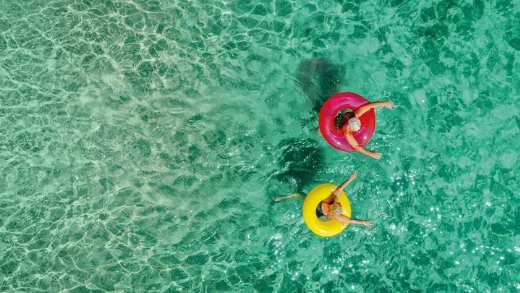
Features
Retirement: the longest holiday you’ll ever plan
22 Nov 2023
In this episode of the Aviva Podcast, Steve and Tom unpack workplace pensions.
-
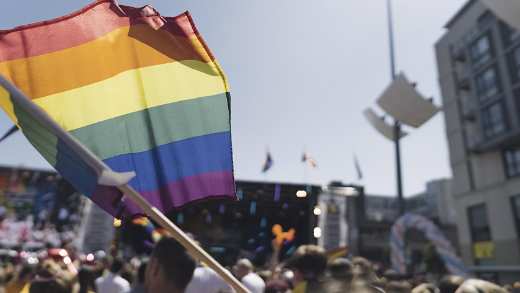
Features
Aviva Pride: amazing, supportive and hopeful
27 Jun 2022
David, Jenny and Jason share their stories of what Aviva's Pride community is all about, why it’s so important, and what it means to them.
-
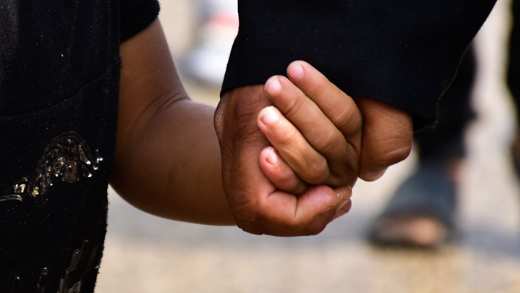
Features
Our carers community: compassionate, caring and resilient
7 Jun 2022
Listen in as Martin, Natalie and Kofi share their stories of why Aviva Carers is so important, and why the community means so much to them.
-
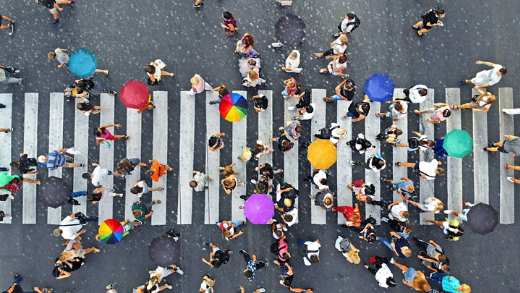
Features
Wellbeing special: living and working with autism
1 Apr 2022
In this wellbeing special episode, our host Johnny talks to Aviva employees and couple Matthew and Daniel about their experiences living with autism.
-
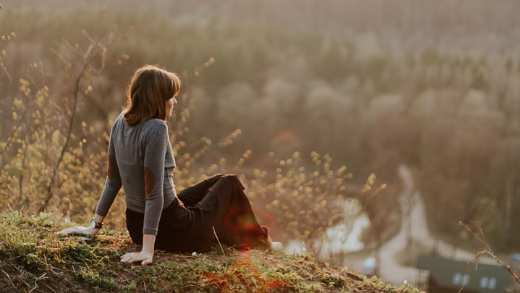
Features
Wellbeing special: dealing with loneliness
22 Dec 2021
In this wellbeing special episode, our host Johnny talks about loneliness with Dr. Rob Rosa, Chief Medical Officer at Aviva.
-
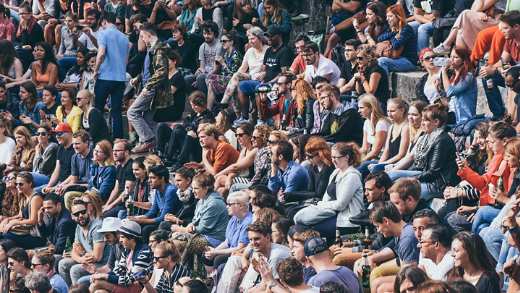
Features
Wellbeing special: tips to tackle 'lockdown anxiety'
27 Jul 2021
In the first of a mini-series of wellbeing specials...
-
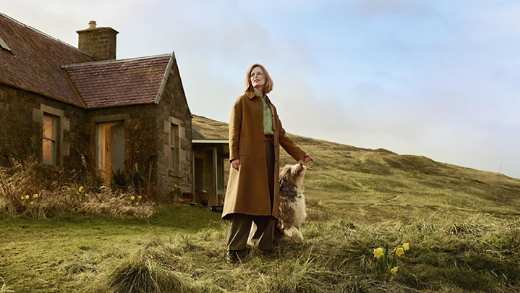
Features
The power of a sonic logo
23 Jun 2021
When Aviva unveiled its new brand positioning, 'It takes Aviva', it did something it's never done before.
-
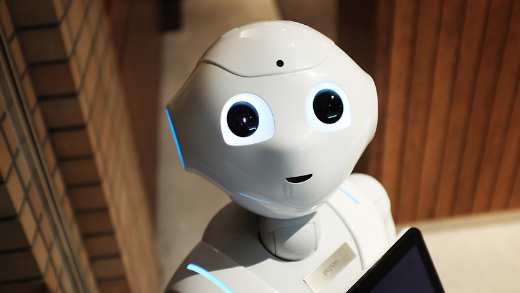
Features
Could robots lead to a better tomorrow?
29 Mar 2021
It's been a hundred years since the word 'robot' was first used*, but are we another century away from seeing them in our daily lives?
-
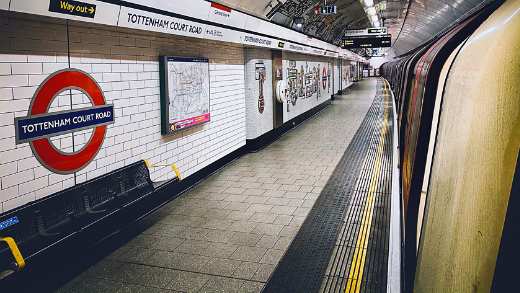
COVID-19: The man who sent everyone home
12 Feb 2021
One year on from when we started hearing about COVID-19, we speak to John Bernard, Aviva's Director of Group Corporate Security.
-
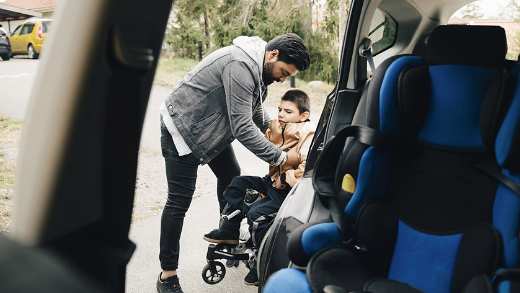
Building a more inclusive organisation
20 Jan 2021
In this episode, we talk to six of our Aviva Communities co-chairs to find out how they're working towards making Aviva a more inclusive organisation.
-

Can ‘cognitive reserve’ improve resilience to dementia?
9 Dec 2020
In the latest episode of the Aviva Quantum podcast, we talk about increasing our resilience to the effects of dementia.
-

Retirement in the time of coronavirus
19 Oct 2020
People in mid-life are a population under strain. Could a simple app, empower them to take control and improve their work, wealth and wellbeing?
-
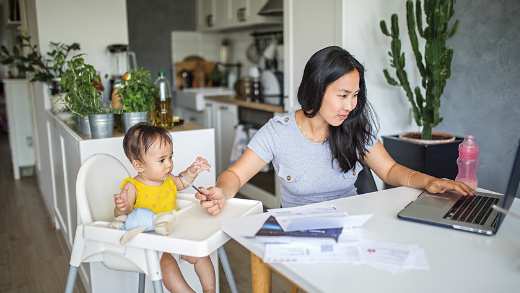
Flexible working: what workers want
23 Sep 2020
What can supportive employers do to make working from home easier for their people?
-

How to be a leader when you're at home
16 Jul 2020
COVID-19 has seen millions of people swap their offices for homeworking. How can you be an effective leader from home?
-
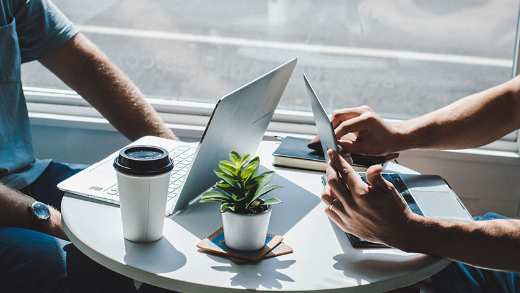
Ever heard of an MOT for humans?
5 Sep 2019
Every year, you put your car in for its MOT. But how often do we take a step back and give the important areas of our life an assessment?
-

Dementia: the 21st century's biggest killer
3 Sep 2019
Dementia is the 21st century's biggest killer and 1 in 3 babies born now will go on to develop dementia.

















